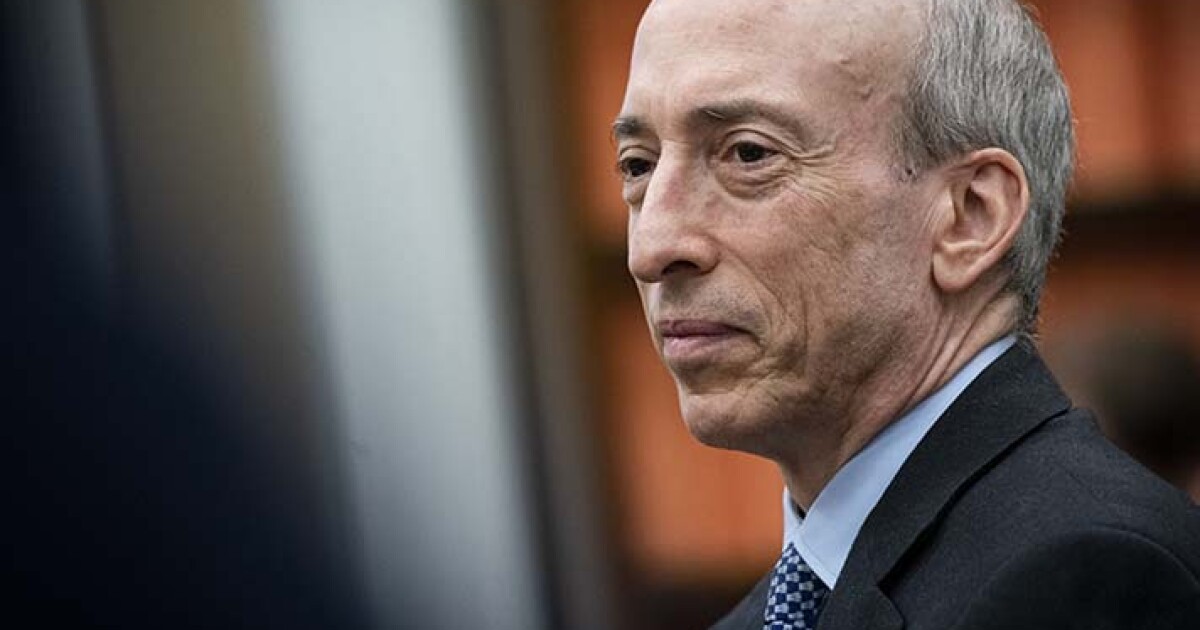Gensler doubles down on controversial money market fund rules
3 min read

Securities and Exchange Commission Chairman Gary Gensler defended his rulemaking agenda, this time in front of the Senate Banking Committee, as serious concerns were raised about the rules.
The amendments to money market fund rules — which include a provision the money market fund industry largely opposed that requires liquidity fees for net redemptions exceeding 5% — approved in July, were questioned by the panel.
Bloomberg News
The recent amendments will impact tax-exempt money market funds — healthy money market funds are important to the municipal bond market since they purchase municipal securities and municipal issuers use the funds as investors.
“Taking into account public comment, the final money market rules, as adopted, will require liquidity fees instead of the originally proposed swing pricing requirement,” Gensler said in his prepared comments. “Liquidity fees, compared with swing pricing, offer many of the same benefits and fewer of the operational burdens.”
Gensler used his time on the Senate floor to defend the virtually universal belief of the banking sector and lawmakers that his regulatory agenda is being enacted far too fast for the industry or investors to catch up.
During the hearing, virtually everyone either criticized him for doing too much, or in the case of Sen. Elizabeth Warren, D-Mass., not enough.
“The SEC’s unprecedented regulatory changes, without any mandate, to enact so many new rules threaten market liquidity, market integrity, and the savings of America’s working families,” American Securities Association President and Chief Executive Officer Chris Iacovella said ahead of the hearing. “The rulemaking process is being rushed, done without substantive economic analysis and in many cases, without any statutory authority.”
Gensler also responded to criticism of the upcoming climate risk disclosures the Commission proposed last year and is still mulling over. These would act as a benchmark for how the Commission views climate risk for the muni industry, lawyers said at the time.
Addressing comments by Sen. John Tester, D-Mont., about how rules intended for public companies often trickle down to smaller private companies, Gensler assured senators he and his staff are being thoughtful about any regulations that would have such sweeping effects.
“We’ve heard from not just you but from many farmers and ranchers across this great land from a lot of small and medium-sized enterprises who have said, ‘look, we don’t want to fill out the surveys,’ as you said, and I’ve asked staff to really take a close look at those comments to make sure that we’re only regulating the public companies and not somehow, indirectly, those private companies,” Gensler noted.
“Right now, just to give you an example, of the top 1,000 companies by market cap, about 80% of them make climate-risk disclosures,” Gensler said. “We’re just trying to bring some comparability.”
In response to criticism about how Gensler is building up his staff to unprecedented levels, he noted, the SEC’s headcount shrank from 2016 through last year and this year Commission staff is expected to be 3% larger than it was in FY 2016.
He cited a seminal 1963 SEC report that said “no regulation can be static in a dynamic society. Unanticipated changes in the markets and the broader public participation should be accompanied by corresponding investor protection.”
He updated the sentiment. “We cannot take this for granted,” Gensler said. “Yes, even a gold medalist must keep training and that’s why we’re updating our rules for the technology and business models of the 2020s.”







